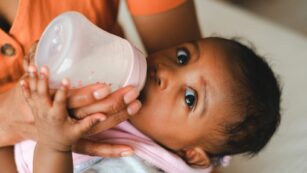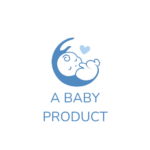Navigating the world of baby feeding can feel overwhelming for new parents, but understanding the essentials simplifies the journey. From bottles to bibs, these tools are more than just items—they’re key players in ensuring a smooth feeding experience for both baby and caregiver. This article explores the must-haves that make feeding time efficient and enjoyable.
Whether breastfeeding, formula-feeding, or a combination of both, having the right equipment is crucial. Parents seek products that are safe, practical, and designed to support their baby’s nutritional needs. With countless options available, knowing what truly matters helps parents make informed choices that align with their lifestyle and values.
As babies grow, their feeding needs evolve, introducing new challenges and opportunities. By focusing on essential items, parents can confidently adapt to these changes, ensuring their little ones receive the best care possible. With the right knowledge, feeding time becomes a cherished routine rather than a daunting task.
Baby Feeding Essentials
Material Considerations and Different Nipple Shapes
 Material selection impacts both safety and comfort. Opt for BPA-free plastic or glass bottles to reduce exposure to harmful chemicals, ensuring safety during feeding. Silicone nipples provide flexibility and durability, offering a gentle experience for infants. Stainless steel bottles stand as an alternative to plastic and glass, offering long-lasting use and ease of cleaning.
Material selection impacts both safety and comfort. Opt for BPA-free plastic or glass bottles to reduce exposure to harmful chemicals, ensuring safety during feeding. Silicone nipples provide flexibility and durability, offering a gentle experience for infants. Stainless steel bottles stand as an alternative to plastic and glass, offering long-lasting use and ease of cleaning.
Nipple shape affects feeding and comfort. Standard nipples cater to most babies with a straightforward design. Orthodontic nipples support oral development with a specially contoured shape, helpful for infants with specific requirements. For breastfed babies, wide-base nipples mimic the natural breast shape, aiding in transition between breast and bottle feeding.
Formula Vs. Breastfeeding
 Formula and breastfeeding offer distinct benefits and considerations. Each provides essential nutrients, but parents need to evaluate their unique circumstances and health preferences. Breastfeeding delivers antibodies and nutrients naturally from the mother, promoting strong immunity in babies, according to the Centers for Disease Control and Prevention (CDC). Breast milk adapts to a baby’s changing needs during growth spurts or illnesses, offering tailored nutrition.
Formula and breastfeeding offer distinct benefits and considerations. Each provides essential nutrients, but parents need to evaluate their unique circumstances and health preferences. Breastfeeding delivers antibodies and nutrients naturally from the mother, promoting strong immunity in babies, according to the Centers for Disease Control and Prevention (CDC). Breast milk adapts to a baby’s changing needs during growth spurts or illnesses, offering tailored nutrition.
Formula feeding, on the other hand, allows flexibility and sharing feeding responsibilities among caregivers. Modern formulas are fortified with vitamins and nutrients, such as iron, which supports healthy development. It also facilitates feeding in diverse settings where breastfeeding may be challenging. Some parents prefer formula due to personal health issues or lifestyle factors that make breastfeeding impractical.
Ultimately, the choice between formula and breastfeeding depends on various factors, including medical advice, parental preference, and lifestyle considerations. Each option meets babies’ nutritional needs, promoting healthy growth and development.
Must-Have Accessories
Having the right baby feeding accessories enhances the feeding experience and reduces stress for parents. Bottle warmers quickly heat milk or formula to the ideal temperature, ensuring that it’s ready when the baby is hungry. Sterilizers maintain hygiene by eliminating bacteria from bottles and nipples, crucial for newborns with vulnerable immune systems. Bibs reduce mess during feeding and protect clothing from stains, while burp cloths offer convenience for cleaning spills and aiding in burping.
Breast pumps support breastfeeding mothers by allowing milk expression for storage and future use. This flexibility is valuable for mothers returning to work or needing time away. Nursing pillows provide comfort and proper positioning, reducing strain on a mother’s back and arms during feeding.
Solid Feeding Essentials
 Introducing solid foods marks an exciting milestone in a baby’s development. Parents often look for the right tools to ensure a smooth transition. Here are some essentials for solid feeding:
Introducing solid foods marks an exciting milestone in a baby’s development. Parents often look for the right tools to ensure a smooth transition. Here are some essentials for solid feeding:
-
High Chairs: Provide stability and safety. Choose models with adjustable trays and harnesses to accommodate growing toddlers.
-
Baby Spoons and Bowls: Soft-tip spoons protect gums, and non-slip bowls minimize spills. Silicone and BPA-free plastic options are safe and durable.
-
Food Storage Containers: Preserve homemade baby food. Opt for stackable containers with airtight lids to maintain freshness.
-
Bibs: Offer protection against spills. Waterproof and easy-to-clean bibs save time and keep clothes tidy.
-
Sippy Cups: Help in transitioning from bottles. Choose spill-proof designs with easy-grip handles to aid motor skills.
Each item supports a stress-free solid feeding experience, laying the foundation for healthy eating habits.

